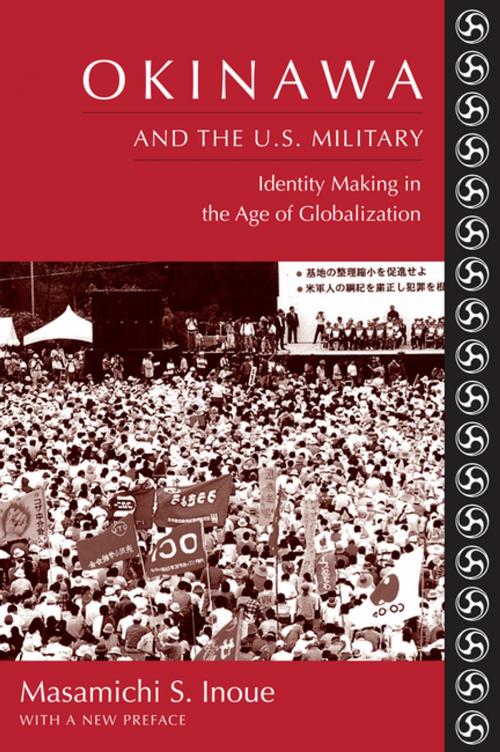Okinawa and the U.S. Military
Identity Making in the Age of Globalization
Nonfiction, Social & Cultural Studies, Political Science, International, Treaties, History, Asian, Japan, Social Science| Author: | Masamichi Inoue | ISBN: | 9780231511148 |
| Publisher: | Columbia University Press | Publication: | April 17, 2007 |
| Imprint: | Columbia University Press | Language: | English |
| Author: | Masamichi Inoue |
| ISBN: | 9780231511148 |
| Publisher: | Columbia University Press |
| Publication: | April 17, 2007 |
| Imprint: | Columbia University Press |
| Language: | English |
In 1995, an Okinawan schoolgirl was brutally raped by several U.S. servicemen. The incident triggered a chain of protests by women's groups, teachers' associations, labor unions, reformist political parties, and various grassroots organizations across Okinawa prefecture. Reaction to the crime culminated in a rally attended by some 85,000 people, including business leaders and conservative politicians who had seldom raised their voices against the U.S. military presence.
Using this event as a point of reference, Inoue explores how Okinawans began to regard themselves less as a group of uniformly poor and oppressed people and more as a confident, diverse, middle-class citizenry embracing the ideals of democracy, human rights, and women's equality. As this identity of resistance has grown, however, the Japanese government has simultaneously worked to subvert it, pressuring Okinawans to support a continued U.S. presence. Inoue traces these developments as well, revealing the ways in which Tokyo has assisted the United States in implementing a system of governance that continues to expand through the full participation and cooperation of residents.
Inoue deftly connects local social concerns with the larger political processes of the Japanese nation and the global strategies of the United States. He critically engages social-movement literature along with postmodern/structural/colonial discourses and popular currents and themes in Okinawan and Japanese studies. Rich in historical and ethnographical detail, this volume is a nuanced portrait of the impact of Japanese colonialism, World War II, and U.S. military bases on the formation of contemporary Okinawan identity.
In 1995, an Okinawan schoolgirl was brutally raped by several U.S. servicemen. The incident triggered a chain of protests by women's groups, teachers' associations, labor unions, reformist political parties, and various grassroots organizations across Okinawa prefecture. Reaction to the crime culminated in a rally attended by some 85,000 people, including business leaders and conservative politicians who had seldom raised their voices against the U.S. military presence.
Using this event as a point of reference, Inoue explores how Okinawans began to regard themselves less as a group of uniformly poor and oppressed people and more as a confident, diverse, middle-class citizenry embracing the ideals of democracy, human rights, and women's equality. As this identity of resistance has grown, however, the Japanese government has simultaneously worked to subvert it, pressuring Okinawans to support a continued U.S. presence. Inoue traces these developments as well, revealing the ways in which Tokyo has assisted the United States in implementing a system of governance that continues to expand through the full participation and cooperation of residents.
Inoue deftly connects local social concerns with the larger political processes of the Japanese nation and the global strategies of the United States. He critically engages social-movement literature along with postmodern/structural/colonial discourses and popular currents and themes in Okinawan and Japanese studies. Rich in historical and ethnographical detail, this volume is a nuanced portrait of the impact of Japanese colonialism, World War II, and U.S. military bases on the formation of contemporary Okinawan identity.















